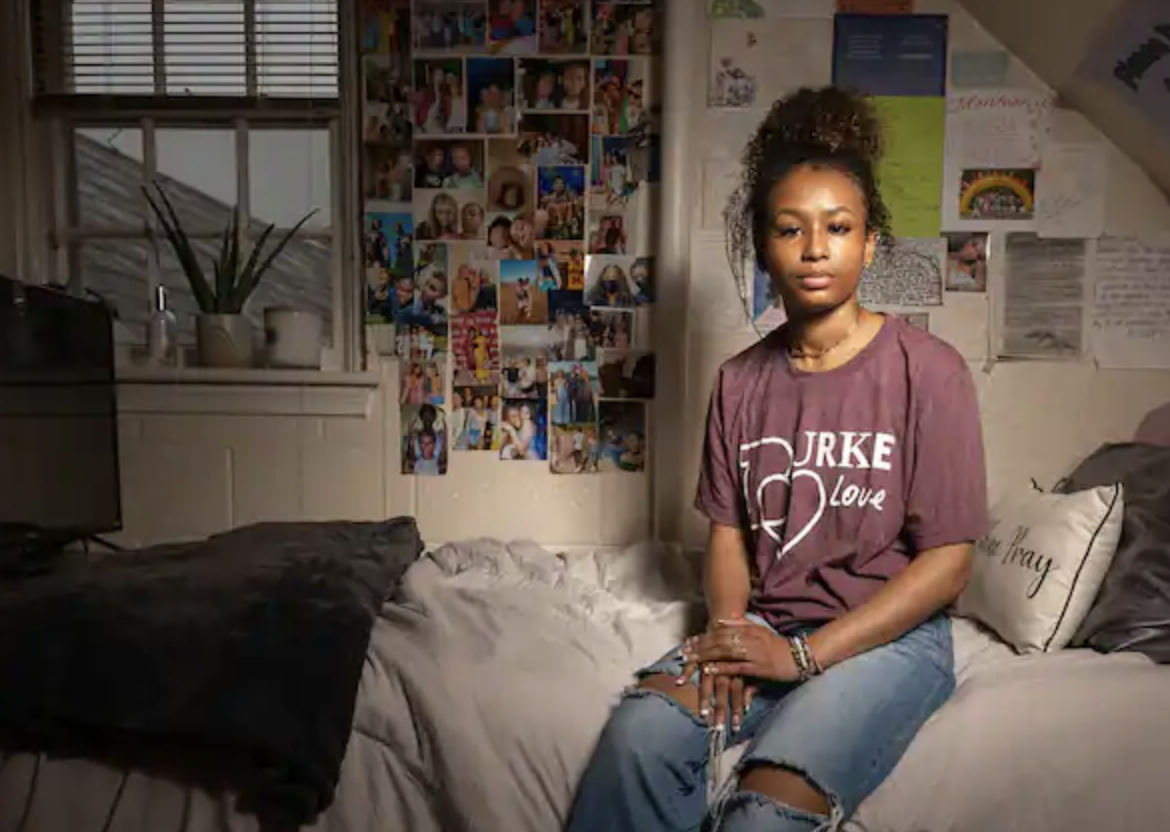Parents and the public have been shocked by the disturbing revelations in a new CDC report about the widespread prevalence of feelings of intense sadness, suicidal ideation, and sexual violence experienced by teenage girls. The Washington Post’s Donna St. George spoke with MCC’s Rick Weissbourd about some of the reasons behind the crisis.
Read MoreRead the latest from Making Caring Common!
You’re in the right place for our media coverage, blog posts, and event information. Our work spans a range of topics, all connected by our commitment to elevate caring and concern for the common good at school, at home, and in our communities. You can review what’s new below or use the dropdowns to sort by topic and category.
Be sure to join our email list and connect with us on Facebook, LinkedIn, and Instagram, to stay current with Making Caring Common’s news and updates. If you’re a member of the media, please visit our Media Room.
Sort by topic
- Access and Equity
- Bias
- Bridging
- Building Connection
- Bullying
- COVID
- CSN
- Caring and Empathy
- College Admission
- Consent
- K-12
- Mental Health
- Misogyny and Sexual Harassment
- Moral and Ethical Development
- Parenting
- Romantic Relationships
- School Culture and Climate
- School Integration
- Social-Emotional Learning
- State of Caring
- Turning the Tide
- Voter Mobilization and Civic Education
- Youth Advisory Board
Sort by category
The latest CDC Youth Risk Behavior Survey released Monday found that nearly 1 in 3 high school girls reported seriously considering suicide—that's an increase of almost 60% from ten years ago. MCC’s Faculty Director Rick Weissbourd spoke with The Washington Post’s Donna St. George on the topic.
Read MoreParenting in the digital age means having difficult conversations with kids—often before adults are prepared for these conversations. This webinar from our friends at Common Sense Media examines kids’ access to online pornography and highlights some of MCC’s related work. Panelists include author Peggy Orenstein, Dolly Klock, MD, Dr. Supreet Mann, and Edward Spector, PsyD.
Read MoreIn this piece for GQ, Eliza Brooke highlights educators who are taking a more holistic approach sex and relationship education and talks to MCC’s Rick Weissbourd about love.
Read MorePeggy Orenstein cites Making Caring Common’s research on young people and sex in her must-read piece in The New York Times.
Read More“The education we receive now is the most recent lesson we will be taught as we go on with our lives. We are in a special position where this is likely the last time we will be sat down and prepared to build healthy relationships in order to avoid sexual assault, rape and harassment.”
Cheryn Hong makes an impassioned call for more education about sexual harassment and assault in The Michigan Daily, citing Making Caring Common’s research with young adults.
Read MoreIn this piece on KYMA, Ivany Villalobos cites Making Caring Common’s research that adults tend to overestimate the number of young people having casual sex.
Read MoreIn this piece in The Conversation, Jordan Long cites Making Caring Common’s research on when (and if) parents talk to their kids about sex and relationships: “Although parents can play a powerful role in a child’s sexual socialization, a Harvard Graduate School of Education report found that roughly 50 per cent of parents express uneasiness when attempting to discuss sex with their children. More than 40 per cent of parents don’t discuss sex with their children until after they are sexually active.”
Read MoreIn this piece for Education Week, Sarah D. Sparks highlights Making Caring Common’s research on sexual harassment and misogyny among young people.
Read MoreIn this piece in HGSE’s Usable Knowledge by Grace Tatter, Rick Weissbourd says, “It’s so critical that kids are able to undertake this work of learning to love somebody else. They’re not going to be able to do it unless we get them on the road and are willing to engage in thoughtful conversations.”
Read MoreAs parents and caregivers, we must do better to prevent children and youth from harming or being harmed, and to help them become caring, humane people. We have tremendous power to shape their understanding of assault and consent, and to be part of the solution to this destructive epidemic. In this article in The Washington Post, MCC leaders Rick Weissbourd and Alison Cashin offer five guideposts to help parents begin these essential conversations.
Read MoreIn this piece in The Wall Street Journal, Making Caring Common’s report The Talk is cited. Difficult conversations about sex and consent have become even more complex — but here’s how dad’s can persist.
Read MoreWe need to talk to young people about misogyny, sexual harassment, and assault.
Amid the bitterly polarizing events of the past week, there seemed to be one point of agreement on both sides of the aisle: Sexual assault is an epidemic in this country, with devastating and long-term repercussions for survivors. We also saw that many survivors—for a number of complex reasons—are unwilling to come forward to report their experiences or even discuss them with trusted friends and family.Parents, caregivers, and educators are our first line of defense in preventing misogyny and sexual harassment, and in raising our children—our boys in particular—to clearly understand and take seriously sexual assault and consent. But as we discussed in our report, The Talk, although rates of sexual harassment and sexual assault are alarmingly high in this country, most parents and educators are not having these critical conversations with the young people in their lives.
Read MoreIn this Washington Post article, Making Caring Common’s research is cited: most parents don’t talk to their boys or girls about making sure that their partner wants to have sex, not pressuring someone into sex, not having sex with someone who is incapacitated and other key aspects of consent. Parents may have “the talk” with their kids, but it’s often much more focused on preventing pregnancy and STDs than on preventing assault.
Read MoreIn this post in the Association for Supervision and Curriculum Development, the deep infection of sexual harassment and misogyny in workplaces and communities across this country has erupted into a national conversation—one appallingly overdue. But we can't stop sexual harassment and misogyny in adulthood without addressing its deep roots in gender roles and expectations in childhood.
Read MoreIn this article in The New York Times, Making Caring Common’s survey of more than 3,000 18- to 25-year-olds is cited. More than 60 percent of respondents had never had a single conversation with their parents about how to be sure that your partner wants to have sex with you.
Read MoreIn this segment for WFMZ, Rick Weissbourd discusses our report "The Talk" and the important conversations about sexual harassment and consent parents need to have with their kids.
Read MoreMaking Caring Common’s research was featured in this article by Rewire.News, which included our finding that a majority of 18-to-25-year-olds had never discussed with parents how to make sure their partner wants to have sex, how to determine their own comfort levels, the importance of not pressuring or persisting when someone says no, how to know how drunk is “too drunk,” or how to be a caring and respectful sexual partner. Now some coaches are bringing the conversation straight to the locker room.
Read MoreHigh school students talked about being sexually harassed and assaulted, and their struggles are not unusual. Eighty-seven percent of women said they had been sexually harassed in a study conducted by Making Caring Common.
Read More




















